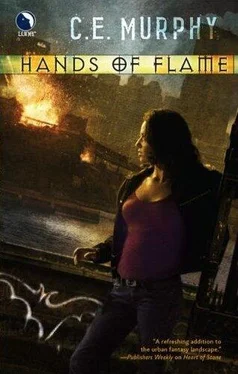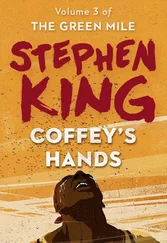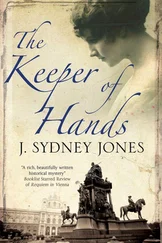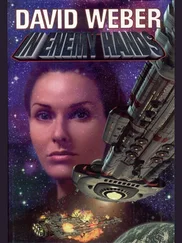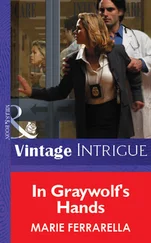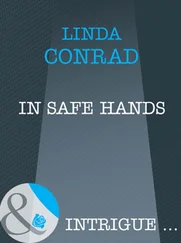And that sentiment rocked back through centuries of time. He believed the choices he had made were the right ones, whether they were supported by Old Races law or gargoyle tradition. Sarah Hopkins had not deserved to die for having loved Janx or Daisani; her children had deserved a chance to live, for all that their fathers’ people said they were aberrations which should not exist.
“You are right,” Alban whispered. “I am not like you at all.” Shock made him cold, unusual for a gargoyle, and he stared across the shifting faces within the overmind in a disbelief so deep it was stained with humor. “All this time spent in defense of our traditions, and it seems I have had very little sense of them at all.”
“Biali once said you might have led us.” Eldred’s eyes went to the stark, white gargoyle, and the weight of a thousand more gazes joined him before they all returned to Alban. Even Biali looked up, mouth flattened with irritation. “I believe you have done so,” Eldred continued. “Whether deliberately or not, you have led us to this place and time, and to these schisms in what we were and what we must become.”
The urge to apologize rose in Alban, but that intent was drowned beneath the weight of Eldred’s words. “We have discussed this amongst ourselves, amongst all the clans who are left.” Power lifted his words, a tide of tears and fear and joy so profound that it tore through Alban’s chest, ripping away the breath there and leaving nothing in its wake. Anticipation: the gestalt tasted of it, and his heart began a too-fast beat of uncertainty, as though understanding lay just beyond his grasp.
“We have debated,” Eldred said again, “and have found only one answer that we can agree to. We gargoyles number in the hundreds, no more, and our time as part of this world will come to an end if we do not choose to change as the selkies have changed. We are not well equipped to force ourselves down that road, and so for all our people, before all our people, it comes to me to tell you that we have, for the first time, chosen a leader for all of our clans, chosen someone to guide us down a path we cannot walk without help.
“So I put it to you, Alban Korund.” A hint of humor darted over Eldred’s face as he obviously and deliberately formed his question in a fashion not typical to gargoyles. “Will you be our first democratically elected leader?”
Humans lived by threes.
Through a fog of rage born from fear, through a blur of red and violent white streaks, the bit of trivia gave Margrit something to hold on to. Three weeks without food, three days without water: those were the average extremes that humans could typically survive.
Three minutes without air.
She would have had more confidence in that number if she’d hyperventilated before being snatched.
She’d left the bar clearheaded, Daisani’s gift working its magic to wipe away the effects of alcohol. If she’d had a plan, it had been to work her way into the storm tunnels and find Alban. Their worlds were changing in tandem, and she wanted both to be at his side, and to have him at hers as they discovered what new paths lay before them.
Instead, for the second time in her life, someone had grabbed her from behind and turned her into nothing more than mist drifting through the city streets.
Even through blinding fury, she doubted her abductor would keep her misted until she died of asphyxiation. Not that she had any particular faith in her long-term survival chances when a djinn had kidnapped her, but she imagined her execution would be public. Allowing her to die during travel lacked drama, and the Old Races had a fondness for drama. Teeth gritted, Margrit closed her eyes against the smearing colors of the world and waited for the air to become breathable again.
When it did, she was cast away, sent stumbling as though her captor had found handling her as distasteful as she’d found being kidnapped. Half blinded by tears, and gasping on too-thick air, she caught herself on her fingertips against the floor, then scrambled to her feet and faced the djinn who’d captured her.
It was Tariq, standing too far away to retaliate against him, even if she had a way. A bubble of anger burst in her: she should be carrying the ridiculous watergun that had condemned Malik. It was feeble protection, but better than nothing. She’d rectify that mistake if she had the chance.
Behind Tariq stood a group of djinn, held in check by little more, Margrit suspected, than his will. It was less defiance than genuine curiosity that made her ask, “Am I still alive because you wanted an audience?” Her voice scratched and she drew another breath, coughing out the last of the fog. It tasted faintly of acid or blood. Like ketchup gone wrong, she thought, then tried to drag her mind back in line.
She’d been brought to a tall delivery garage. Its corrugated rolling door was closed, rattling as traffic passed outside it. The concrete floor was empty in the center, with boxes and pallets piled around its edges. Those, in turn, were littered with selkies and djinn.
There were more than was easily countable, and they had split the room more or less evenly, the door’s width creating a no-man’s-land down the center. Tariq joined his brethren, leaving Margrit alone in a broad, empty swath. She felt suddenly small and remarkably fragile under the eyes of so many Old Races. Unwise impulse drove her to mumble, “You’re probably all wondering why I called you here today….”
Over her attempt at humor, far more clearly than she’d spoken, Cara Delaney’s voice cut through the room: “No.”
Startled, Margrit jerked her gaze up. “Cara? You should still be in the hospital.”
Cara stepped out of the gathered selkies with her head held high, though her cheeks were pale. “I dismissed myself. No, Margrit Knight, we are wondering how it is you think it’s within your right to offer the djinn control of Janx’s territory.”
“I could have sworn you told me to avert a war.”
“Avert a war, not—”
Exasperation flooded Margrit, drowning any sympathy she might have had for the young woman’s injuries. “Give it a rest, Cara. You’re not the right person for the job. I’m sure there are plenty of bastards among your people, and you might’ve gotten a tough-girl badge for getting shot, but you’re not hard enough to run this. Seeing as how Tariq was willing to squeeze my mother’s heart to a pulp, I’m pretty confident he’s got the stones for it.” Margrit shot a glance at the djinn. “Does this mean you’re accepting my offer?”
“We would be fools not to.” Tariq’s voice was thick with dislike.
“And what do the selkies do, Margrit? Slink away with our tails between our legs?” Cara’s voice remained cold, but a sliver of humor wrinkled Margrit’s eyebrows.
“Do seals have tails? Or back legs? They’ve got flipp—” She broke off at Cara’s expression and fought down a smile. “Sorry.” Amusement fled and she pressed fingertips over her eyelids momentarily, knowing she gave away signs of strain and not much caring. “You get to not be embroiled in a war, Cara. You get to be fully recognized members of the Old Races. There are tens of thousands of you, and your leader—Kaimana is your leader, isn’t he?—has a world-market business already. You don’t need Janx’s empire to establish yourselves as heavyweights among your people. In the name of peace, walk away.”
Cara’s jaw tightened and she looked imperiously toward the djinn. He tensed in protest, and Margrit sighed. “If that’s a ‘go away so I can discuss your fate with the human without your interference’ look, don’t bother. Just say it.” Reckless anger flooded her, pushing her beyond the bounds of wisdom. She had a sense of fait accompli, that regardless of her actions it would end badly for her; would very likely end badly for the people to whom she now spoke. Railing at them would probably do her no good and could easily do her harm, but aggravation was more powerful than self-preservation. Especially given that she doubted she could shield herself from whatever sentence the offended Old Races already had in mind.
Читать дальше
